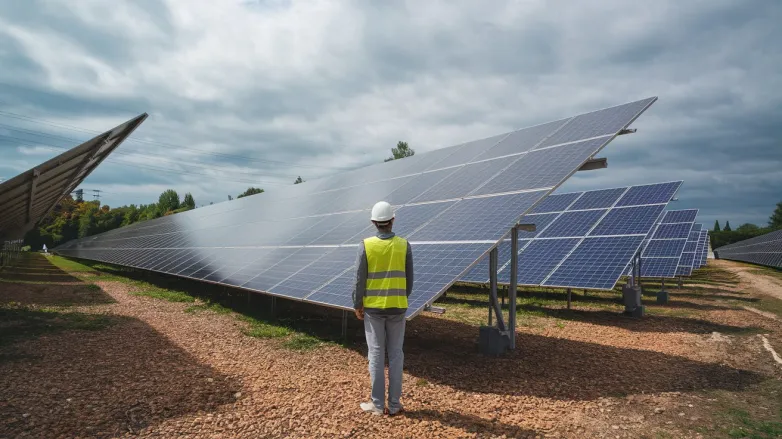Frontier Energy Denied Capacity Credits for Solar Project
- Setback for Frontier Energy as capacity credits elude Waroona solar-plus-storage project; company pivots to alternative funding, eyeing federal support for future success.

Frontier Energy Limited has encountered a setback in the development of its Waroona solar-plus-storage project in Western Australia, failing to secure capacity credits from the Australian Energy Market Operator (AEMO). The initial phase of the Waroona Renewable Energy Project includes a 120 MW solar scheme paired with an 80 MW/360 MWh battery storage system; however, it was not awarded Reserve Capacity Credits (RCCs) for the 2026/27 year due to surplus capacity in the market.
Consequently, Frontier Energy canceled its debt arrangement with Infradebt Pty, which was contingent on receiving these credits. Despite this challenge, the company is exploring alternative funding options, such as bonds, to mitigate potential delays, which are now expected to be under a year. Additionally, Frontier is seeking federal government funding from Australia’s AUD 67 billion Capacity Investment Scheme to support the project’s financial needs.
What are the implications of AEMO's decision on Frontier Energy's Waroona project?
The implications of AEMO's decision on Frontier Energy's Waroona project are significant and multifaceted. Below is a summary of the potential effects:
- Financial Impact: The inability to secure Reserve Capacity Credits (RCCs) could lead to financial strain. Canceling the debt arrangement with Infradebt Pty signifies a need to reassess funding strategies, which may result in increased costs or reliance on alternative, potentially more expensive, financing options.
- Project Timeline: The setback in acquiring capacity credits may delay the project’s timeline. While Frontier is working towards minimizing delays, the adjustments to funding and planning may extend the expected completion date beyond initial projections.
- Market Reaction: This decision could impact investor confidence. The absence of capacity credits typically signals reduced viability in a project, potentially making it harder for Frontier Energy to attract investment or finalize partnerships moving forward.
- Regulatory and Policy Implications: The situation highlights the challenges within Australia’s energy market structure, where capacity surplus can hinder new projects. This may lead to calls for policy changes to better support renewable energy developments, especially for projects transitioning from fossil fuels.
- Pressure on Operational Strategy: Frontier may need to revisit its operational strategy, potentially integrating a scalable approach to the project. This could involve downscaling initial plans or altering the technology mix to optimize available capacity and meet market conditions.
- Competitive Landscape: Other renewable projects may be more attractive to investors and stakeholders due to this decision, putting Frontier at a competitive disadvantage. Rivals who secure capacity credits might expand more quickly, capturing market share and investor interest.
- Community and Stakeholder Relations: Delays and financing challenges could affect community support and stakeholder engagement. Clear communication of plans and adjustments will be vital to maintaining trust and optimism among local stakeholders.
- Impact on Renewable Energy Goals: Frontier's predicament could have wider implications for Australia's renewable energy targets. If similar projects also fail to secure necessary credits, it may hinder the national transition towards a more sustainable energy future as outlined in federal policies.
- Exploration of Innovate Funding: Frontier’s move to explore bonds and federal funding from the Capacity Investment Scheme may signal a shift in renewable energy financing strategies in Australia, potentially paving the way for innovative funding mechanisms amid a challenging investment environment.
- Assessment of Market Conditions: The situation underlines the need for ongoing assessments of market conditions and resource availability. AEMO's stance reflects the operational dynamics of renewable energy vs. conventional power capacities, which may require frequent updates to energy market forecasts.
- Future Projects Precedence: This experience might affect the feasibility assessments of upcoming renewable projects. Developers could become more cautious in their financial planning, knowing that market conditions may change suddenly, particularly in an oversupplied capacity environment.
Also read

